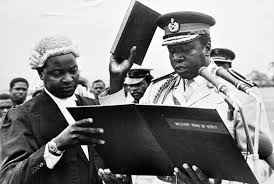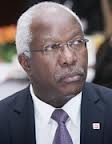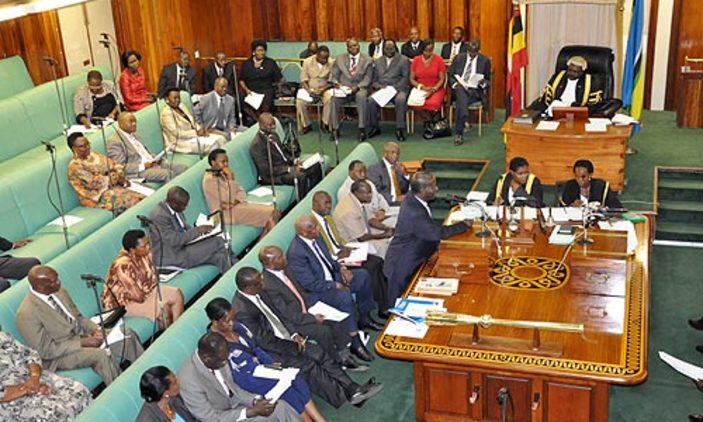History like Mozart is full of undulating repetitions. Reading up for a talk later this month, a friend lent me his copy of “The Report into the Commission of Inquiry into the Violation of Human Rights” that was prepared under Justice A.H.O Oder. The commission was established after 1986 to try and figure out why politics had brought so much suffering and instability to Uganda. Most readers will find many familiar names, like musical strands, some low with subdued shame, others especially victims shrill with the madness of the so-called “Uganda question”, the failure for the most part of an institutionalized “social contract” where common values such as “human rights” are protected by the state no matter the government in power.
Perhaps ironically today when the Uganda parliament finally passed the Public Order Management Bill– one of those post- Tahrir square legislations, the Justice Oder report is like the approaching drum beats that thunder with historical trepidation.
In the 60’s, Uganda’s political consensus unraveled spectacularly, a consensus that was crafted out of colonial institutions and ideas- of the elite at the time about political competition. Many from that era still linger. The political institutions, their leadership and ideas of building a society in the patchwork of ethnicities that occupied Her Majesty’s former property could not be contained within the framework of the 1962 Constitution nor by the erstwhile attempts to legitimize the actions of ruling coalitions such as the Uganda People’s Congress through subsequent legislation.
One of the laws passed to “contain” Apollo Milton’s central Uganda opponents will sound familiar- The Public Order and Security Act of 1967. Obote lost his government to a military coup by Idi Amin. In their preamble to an examination of the Uganda crisis, the Commission begins almost immediately with Amin’s 18 reasons for taking over the government. Like Mozart they sound like familiar keys. Let me list them just for kicks.
Amins 18 reasons
- The unwarranted detention without trial and for long periods of a large number of people, many of whom are totally innocent of any charges.
- The continuation of a state of emergency over the whole country for an indefinite period which is meaningless to everybody.
- The lack of freedom in airing of different views on political and social matters.
- The frequent loss of life and property arising from almost daily cases of robbery with violence and kondoism (robbery with violence) without strong measures being taken to stop them. People feel totally insecure unyet kondoism increases everyday.
- The proposal for National Service which will take every able bodied person from his home to work in a camp for two years, could only lead to more robbery, and general crime when homes are abandoned..
- Widespread corruption in high places, especially among ministers and top civil servants has left people with very little confidence, if any, in the government. Most ministers own fleets of cars or buses, many big houses, and sometimes even aeroplanes.
- The failure by the political authorities to organise any elections for the last eight years whereby the people’s free will could be expressed. It should be noted that the last election within the ruling party were dominated by big fellows with lost of money which they used to bribe their way into “winning” the elections. This bribery, together with threats against the people entirely falsified the results of the so-called elections. Proposed new methods of election requiring a candidate to stand in four constituencies will only favor the rich and the well known.
- Economic policies left many people unemployed and even more insecure lacking in basic needs of life like food, clothing, medicine and shelter.
- High taxes have left the common man of this country poorer than ever before. Here are some of the taxes which the common man has to bear. Development tax, Graduated tax, Social Security Fund Tax. The big men always escape these taxes or pas them onto the common man.
- The process which the common man gets for his crops like cotton and coffee have not gone up and sometimes have gone down whereas the cost of food, education, etc have gone up.
- Tendency to isolate the country from the East African Unity, e.g., by sending away workers from Kenya and Tanzania by preventing the use of Uganda money in Kenya and Tanzania, by discouraging imports from Kenya and Tanzania, by stopping the use in Uganda of Kenya and Tanzania money.
- The creation of wealthy class of leaders who are always talking socialism while growing richer and the common man poorer.
- In addition, the defense council of which the President is the Chairman has not met since July 1969 and this has made the administration in the Armed Forces very difficult. As a result Armed Forces Personnel lack accommodation, vehicles, and equipment. Also general recruitment submitted to the Chairman of the Defense Council a long time ago has not been put into effect.
- The Cabinet office, by training large number of people (largely from the Akokoro county in Lango District where Obote and Akena Adoko, the Chief General Service Officer come from) in armed warfare has been turned into a second army. Uganda therefore has two armies, one in cabinet, the other regular.
- The Lango development master plan, written in 1967 decided that all key positions in Uganda’s political , commercial, army and industrial life have to be occupied and controlled by the people of Akokoro county Lango district. Also the same master plan decided nothing must be done for other districts especially Acholi district. Emphasis must be put in developing Akokoro county in Lango district at the expense of other areas of Uganda.
- Obote on the advice of Akena Adoko has sought to divide the Uganda Armed Forces and the rest of Uganda by picking out his tribesmen and putting them in key positions in the Army and everywhere. Examples: The Chief General Service Officer, The Export and Import Corporation, Uganda Meat Packers, the Public Service Commission, Nyanza Textiles and a Russian Textile factory to be situated in Lango.
- From the time Obote too over power in 1962, his greatest and loyal supporter has been the Army. The Army has always tried to be an example to the whole of Africa by not taking over the government and we have always followed this principle. It is therefore now a shock to us to see that Obote wants to divide and downgrade the Army by turning Cabinet Office into another Army. In doing this, Obote and Akena Adoko have bribed and used some senior Officers who have turned against fellow soldiers.
- We all want Unity in Uganda and we do not want bloodshed. Everybody in Uganda knows that. The matters mentioned above appear to us to lead to bloodshed only.
And the symphony of history plays on. Over to you.










